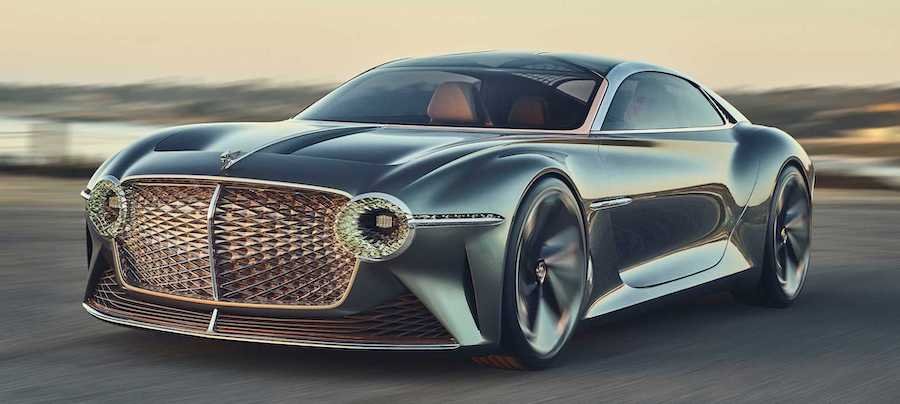First Bentley EV pushed back to 2026 in favour of new PHEVs

Bentley has revised its launch plans, investing more into plug-in hybrids and delaying its first EV to late 2026.
The British luxury brand's first EV had been due in 2025 as the first of five new EVs due at a rate of one per year when first announced in 2022.
A standalone model in the range, it will now be revealed at the end of 2026 with the first deliveries sneaking in by the end of that year.
The later arrival of this EV means that the subsequent EVs – which will replace the existing cars in Bentley’s range – have also been pushed back, as part of a rollout that will end not in 2030 as planned but by 2033.
Bentley plans to become a full EV brand by this date.
This is all part of an investment programme that is “locked and loaded” and will not be “rowed back from”, according to CEO Adrian Hallmark, and the delay to the EV programme means Bentley will invest in hybrid technology that will stay on sale for longer.
While Bentley is working in the longer-term on electric replacements for the Continental GT, Continental GTC, Flying Spur and Bentayga, the first EV will be an entirely new model.
Hallmark hinted that it's an opportunity to launch an “incremental model” that doesn't have a direct predecessor and thus has less pressure on it. A direct replacement for a big-selling SUV like the Bentayaga, he admitted, would be a “gamble” for a debut EV.
The EV will be built in Crewe, where significant building work is under way to expand the factory and build a new dedicated production facility for EVs.
It will be based on the Volkswagen Group’s new Premium Performance Electric (PPE) architecture, which has been co-developed by Audi – Bentley’s parent firm – and Porsche.
Delays in the PPE programme – which pushed back the launch of the new Porsche Macan Electric and closely related Audi Q6 E-tron – is cited as the reason for the delay to the first Bentley EV.
The delay has allowed for the new car to host “better autonomous features than we’d have got in 2025” , said Hallmark, specifically referring to low-speed driving assistance technology and motorway driving.
He said the new technology will even include the ability to avoid kerbing the wheels.
While the new model will mark the start of a major EV push by Bentley, the recent slowdown in the EV market has convinced the firm that PHEV powertrains can prove more than an interim technology.
It's currently gearing up to launch a new high-performance PHEV system, based around a V8 engine, that will serve as a replacement for the venerable W12 engine that has just been discontinued.
Hallmark said Bentley had originally expected hybrid demand to sharply drop off towards the end of the decade but now expects that demand to grow.
To that end, Bentley will invest “hundreds of millions” more into PHEVs and they will remain on sale into the early 2030s.
Hallmark called hybrids a “credible transitional technology that effectively reduces CO2 emissions and to start the journey towards electrification for those people that can't afford [an EV] or can't live with the usage pattern that they force you to use”.
He confirmed that the GT, GTC and Flying Spur will be heavily updated later this year with the new V8 PHEV drivetrain replacing both the standard V8 and W12, at which point the entire Bentley line-up will be hybridised.
The V6 PHEV will stay in the range. The Bentayga will keep a pure-ICE option until 2026, when it goes full hybrid.
The model news accompanied the publication of Bentley’s latest financial results. Last year was the third best in Bentley’s history for volume, with 13,560 cars sold, and its second best for profitability, at €589 million (£504m).
Hallmark said the results were a “great indicator of the business model we’ve created”, as essentially demand was flat but profitability was still able to soar, due to selling cars at higher prices and with more bespoke content on them.
Some 70% of all Bentleys sold had bespoke Mulliner content, in addition to the average €38,000-€39,000 of options added.
Nouvelles connexes


